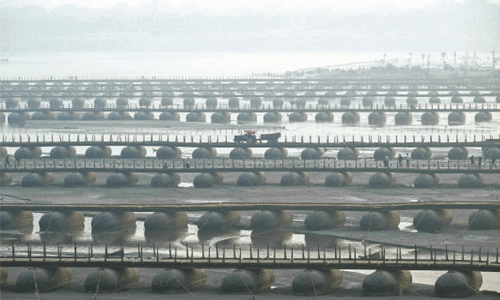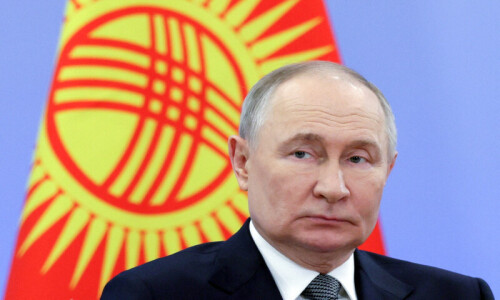
A visiting delegation from the International Commission of Jurists criticised Pakistan’s Court for exercising suo motu excessively, stating that judicial interventions were seen by some as the court exercising “undue influence.” A representative for the Supreme Court rejected the claim as being based on faulty information, because the rules for suo motu are laid out in Article 184(3) of the Constitution and in case law. However, learned experts inside the country including Asma Jahangir, have asked the court to create a legal standard for the use of suo motu. Though suo motu has been used to remedy several of the nation’s major issues, its practice cannot continue until a legal standard is developed that takes into account all the potential negative aspects of its use.
The first critique was expressed by Asma Jahangir when she stated that without a legal standard in place, suo motu “could poison the system” by allowing the court to make purely political decisions while creating tension with the other branches. This critique relates to the fact that when a court uses suo motu for political decisions, it steps on the feet of the elected branches of government. Not only does this cause mistrust of the judiciary by the other branches of government, it could lead to an all out rebellion where the president and parliament refuse to execute the decisions of the court. Such an occurrence would not only damage the procedural workings of the judiciary, but would call into question the credibility and legitimacy of the court’s decisions.
Another criticism of the use of suo motu without a legal standard is that it allows for an inequality of decision. As Saroop Ijaz has pointed out, when a court has no system to check its judicial activism, it allows for some cases to be remedied and not others. There is a great element of chance involved in the current use of suo motu, where a citizen who has received media coverage of his constitutional injury has a higher likelihood to receive redress by the court than those who lack media attention. Such a practice violates the central principle in any legal community, which is that the judiciary must apply the law equally with consistency.
The court and its supporters would reject all these arguments saying that the issues of Pakistan are so grave that legal formalities should not impede the court’s action in addressing injustice. However, Justice Fakhruddin G. Ebrahim aptly stated, “the superior courts may successfully cure many of the nation’s evils only by taking a deliberate approach to addressing injustices in its society through a legal framework that respects the balance of power and can be expanded on by jurists to come.”
Thus, there is a three step analysis that can be used by the judiciary in examining cases involving suo motu. First, there must either be an actual injury to a fundamental right listed in Chapters 1 and 2 of the Constitution or the injured party belongs to a protected class of minorities. The fundamental rights are an admittedly long list that could be used to describe most issues of injustice: from rights of a criminally accused, to security of person, to freedom of speech. These rights can be placed on a schedule of most significant to least significant, with a special eye for protecting the nation’s minorities including women, ethnic and religious minorities.
If the first element is fulfilled, then the court must ask prove that there has either been a record of inaction by elected officials or elected officials are involved in the violation of a fundamental right. This requirement addresses the critique that the court is taking power away from the president or parliament in a capricious or confrontational manner. Rather, this element will explain to the public the necessity for court action in the face of nonfeasance or misfeasance by elected branches. This will increase the transparency of the court’s decision and allow for the court to act when the elected officials are allowing injustice to occur or are carrying it out themselves.
If these elements are fulfilled, the Supreme Court must finally ask whether the injury in the case is likely to be repeated such that the court will have to exercise suo motu again. This addresses the claim that without rules the court could use suo motu to help their friends or to engage in corruption. The requirement attempts to lower the frequency of the use of suo motu by adding a formal hurdle that must be met before the court takes action. Thus, outliers and seemingly random cases taken by the court in the past would be rejected under this new standard.
When a case does not fulfill all three elements, it does not mean that the plaintiff can never access the court, but rather requires them to file a formal petition to the Court with the aid of counsel. The issue with many of the suo motu cases is that they involve poor plaintiffs who know little about the legal system and lack the resources to properly file a complaint with the court. Thus, along with introducing this new legal standard, the court should create a legal think tank of law clerks who will look at rejected suo motu cases and assist injured individuals in preparing briefs for the court. Further, there should be non-profit groups supported by private and public donors that could provide free legal counsel to those individuals whose claims are rejected by the court.
Without a system in place by which the court can describe when and why suo motu will be used, the justices will continue to face criticism from international legal scholars as well as Pakistani experts. Though this will be a slowly developing process, such a standard should be introduced as a legal tool that will allow the Court to continue pursing justice in some instances, while allowing the elected branches to take responsibility of others.
The writer holds a Juris Doctorate in the US and is a researcher on comparative law and international law issues.











































